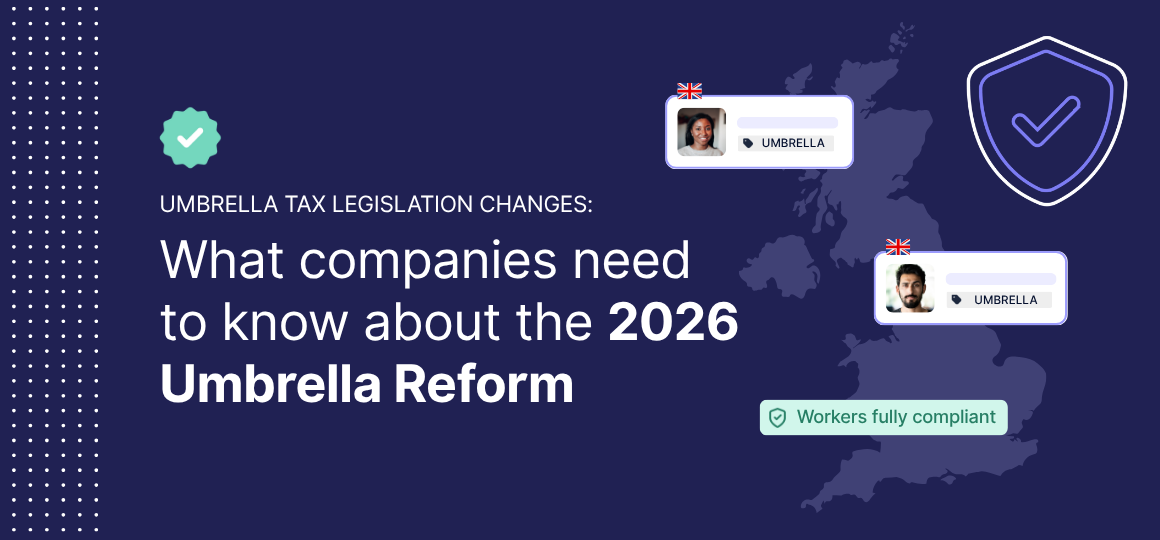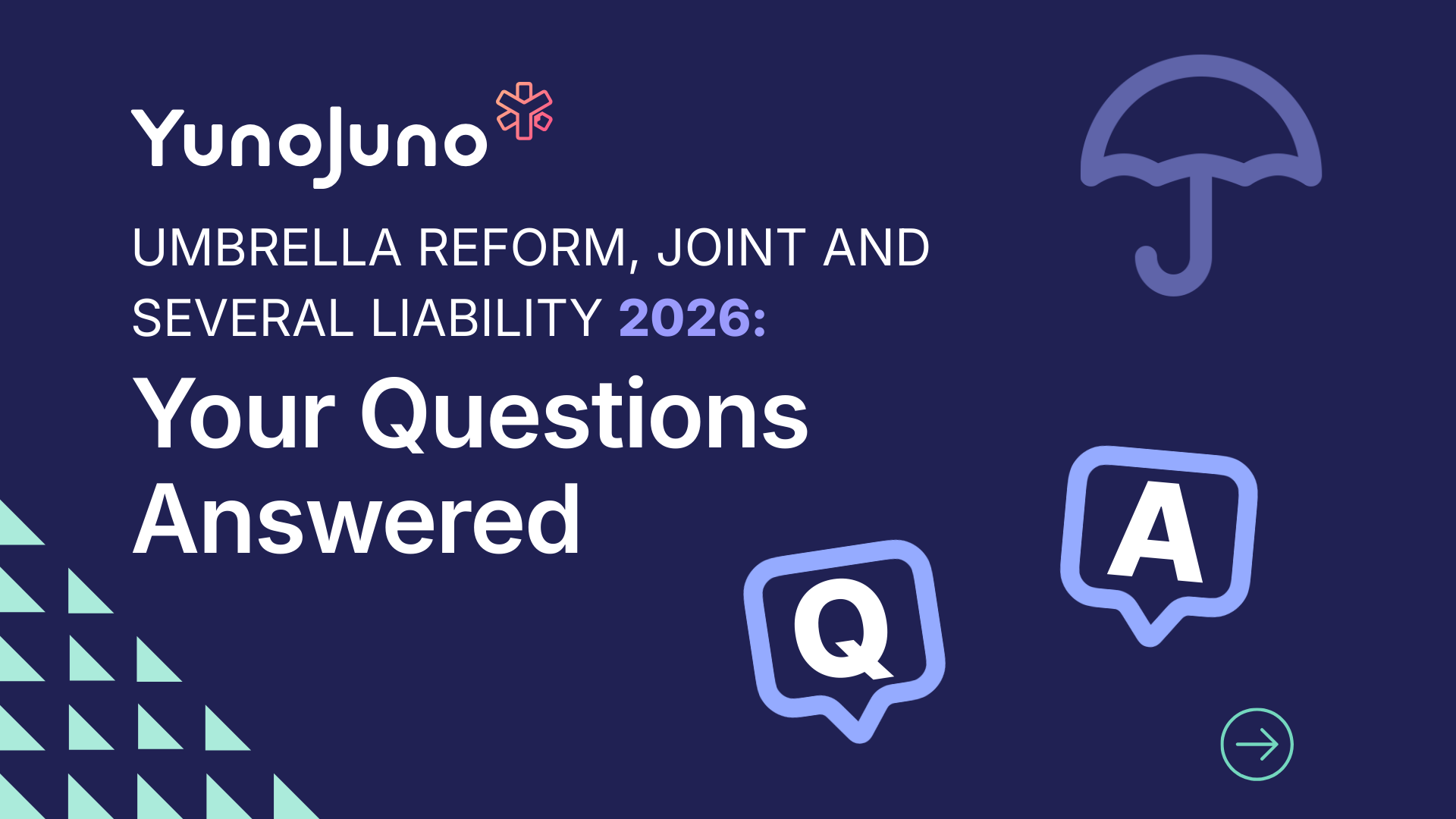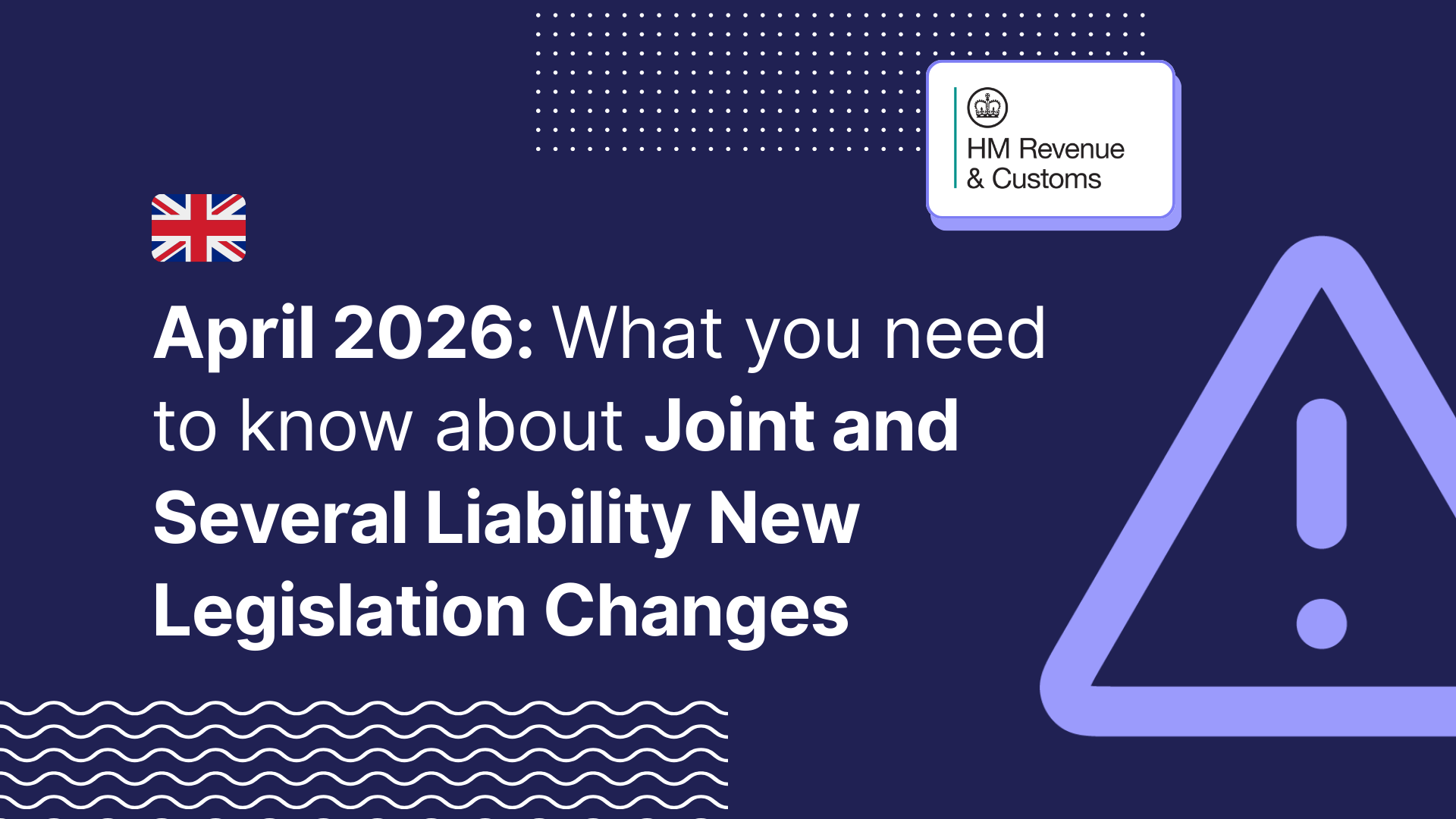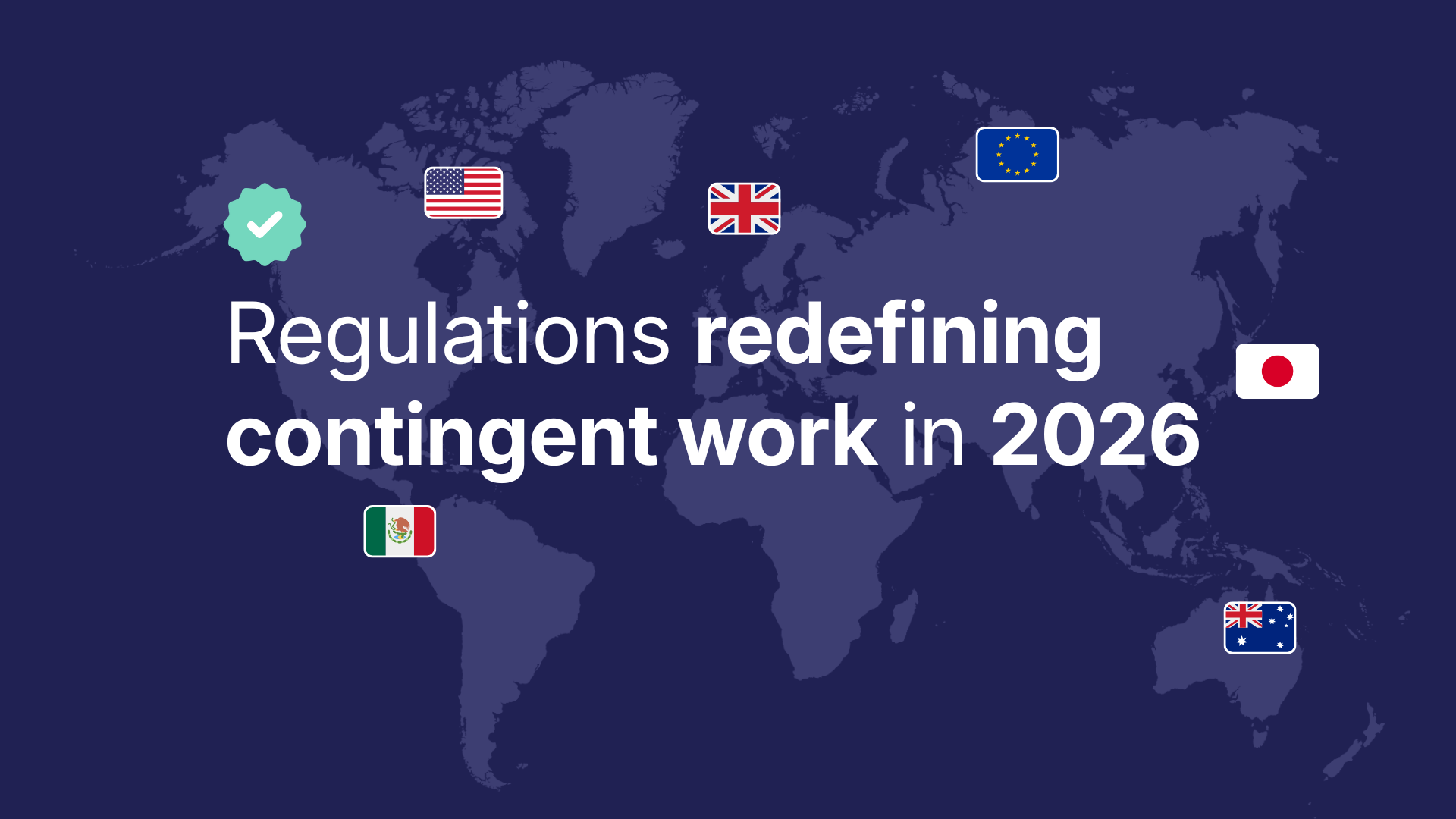The government's umbrella company reform, effective April 2026, will significantly reshape how businesses engage contractors. Under the new rules, if an umbrella company fails to remit the required PAYE taxes or National Insurance Contributions (NICs), HM Revenue & Customs (HMRC) will be able to recover the shortfall directly from others in the supply chain. This includes recruitment agencies and end clients.
This change introduces a model of joint and several liability, meaning that even if a company performed thorough due diligence, it may still be held responsible for unpaid taxes. It's a shift from assumed compliance to enforced accountability, with major financial implications for companies relying on contractor services.
What changes under the 2026 umbrella reform?
Legislative Summary: The Finance Bill 2025-26 introduces a new joint liability framework for payroll taxes when contractors are paid via umbrellas. Effective 6 April 2026, any company hiring contingent workers through an umbrella will face a new risk profile. Below are the key aspects of the reform:
The New Liability Model
- Joint & several liability for PAYE/NIC: Starting in April 2026, if a worker is engaged through an umbrella company, the agency or client using that worker becomes jointly and severally liable for any PAYE tax and NICs that the umbrella should have paid. This legal change effectively makes those parties a guarantor for the umbrella’s tax obligations.
- HMRC can collect tax from you: The legislation empowers HMRC to recover the full amount of unpaid payroll tax directly from the recruitment agency or end-client, without having to chase the umbrella company first. In other words, your business could be on the hook immediately if an umbrella in your supply chain fails to pay the correct taxes.
- No safe harbour (Strict Liability): Unlike some areas of tax law, there will be no “reasonable steps” defence under this reform. Even if you performed comprehensive due diligence on your umbrella provider, it does not absolve your liability if that provider defaults on its PAYE obligations. The liability is automatic, underscoring how critical it is to only work with fully compliant umbrellas.
Who bears the liability?
Not every party in the hiring chain is equally liable. The law pinpoints specific “relevant parties” to target. Here’s how responsibility will be assigned...
- Recruitment agencies: If you engage contractors via a recruitment agency (who in turn uses an umbrella company to pay the workers), that agency will typically be the primary “relevant party” liable for any unpaid PAYE/NIC. Essentially, HMRC will look to the agency first in the event of non-compliance.
- End clients: If no agency is involved and for example, your company contracts directly with an umbrella company to supply a contractor, then your company (the end client) is directly liable under the joint liability rules. There is no buffer: the responsibility for the umbrella’s tax compliance falls to you.
- Complex supply chains: In more convoluted supply chains with multiple intermediaries (e.g. master vendors or managed service providers), the party contracting directly with the end client is treated as the relevant party. That top-layer agency or MSP, which has the direct relationship with the client company, will share liability alongside the umbrella. In short, the liability travels up the chain to whichever entity has the direct contract with the client using the worker.
These provisions mean that merely assuming your supply chain is handling tax correctly is a risky gamble. Businesses must now take active steps to ensure compliance throughout their contractor hiring pipeline, or potentially face large tax bills and penalties down the line.
What companies must do now
For organisations relying on umbrella companies, these reforms demand immediate attention. Preparations should focus on risk assessment of current practices and strategic adjustments to mitigate exposure. Below are key steps companies should be taking:
Risk Assessment
- Audit current arrangements
Conduct a thorough audit of all umbrella companies currently in your contractor supply chain. Identify which departments or projects use umbrella-paid contractors and document the due diligence you’ve done for each umbrella (e.g. checking accreditation, payment records, etc.). Where gaps exist, implement stricter vetting and monitoring processes now. Every umbrella should be able to prove it is properly deducting and remitting PAYE. Don’t just take their word for it.
- Calculate your exposure
Quantify how much of your workforce spend goes through umbrella companies and estimate the potential tax liability if one or more of those umbrellas turned out to be non-compliant. This scenario planning is crucial for board-level awareness. Also, review any insurance or indemnity clauses you have as most general business insurance policies will not cover a tax liability of this nature, meaning your company could have to absorb the full cost. Understanding the worst-case exposure will underscore why proactive measures are needed.
- Legal and contractual review
Engage your legal team to update contracts and agreements with any recruitment partners or umbrella companies. Insert robust compliance clauses and indemnities where possible (for instance, requiring the umbrella to reimburse you for tax liabilities you incur due to their non-compliance). While an indemnity won’t stop HMRC from coming after you, it at least gives you a path to recoup losses. Now is also the time to develop an incident response plan, i.e. a clear procedure for what to do if HMRC does issue your company with a notice for unpaid umbrella taxes, or if you discover an umbrella in your supply chain isn’t paying correctly.
Strategic planning
With risks identified and immediate gaps addressed, companies should also consider broader strategic shifts in how they engage contractors:
Explore alternative engagement models
Reducing or eliminating reliance on third-party umbrella companies can significantly lower your risk. Many firms are now moving toward direct contractor engagements through compliant platforms or services. For example, using a freelancer management platform (like YunoJuno) or engaging contractors via an Employer of Record (EOR) service can ensure that all tax and compliance obligations are handled upfront, without a rogue umbrella in the mix.
Alternatively, for long-term contractors you engage frequently, you might consider bringing them onto your own payroll or using fixed-term employment contracts, thereby retaining full control over PAYE.
Tighten supplier criteria
If using umbrellas remains necessary for your operations:
- Streamline and fortify your supply chain. Work with a smaller number of umbrella companies that are thoroughly vetted and preferably accredited by industry bodies or recognised by HMRC for compliance.
- Establish a regular auditing schedule (e.g. quarterly or biannually) to review each umbrella’s PAYE payments and practices.
- Require transparency, you should be able to obtain evidence that workers’ taxes are being paid to HMRC. Essentially, treat umbrella companies as high-risk suppliers that need ongoing oversight.
Centralise oversight and documentation
One of the biggest challenges is simply keeping track of contingent worker arrangements and who is paying them. Companies should centralise all contractor engagement data in a single system of record. By managing your contractors through a dedicated Freelancer Management System (FMS), you gain real-time visibility into how each worker is engaged and paid. This kind of platform can enforce standardised compliance checks, store all contracts and payment records, and flag any deviations.
For instance, managing even umbrella-paid contractors via a platform like YunoJuno allows you to maintain audit trails and verify that every step, from onboarding to payment, meets the required compliance standards. In the new era of joint liability, having this level of visibility and control is a must-have rather than a nice-to-have.
How YunoJuno mitigates umbrella reform and global worker classification tax risks
Given the heightened compliance burden, YunoJuno’s platform offers a robust solution to de-risk and streamline contractor engagements. As a Freelance Management System and marketplace, YunoJuno was built with compliance at its core globally. Here’s how YunoJuno’s protective framework addresses the challenges posed by the umbrella reform (and broader worker classification risks worldwide):
- Automated compliance: YunoJuno provides built-in worker classification and compliance checks in over 165 countries, ensuring that each contractor is engaged under the correct terms and tax setup from day one. The platform automatically generates locally compliant contracts and continuously updates its processes in line with changing legislation. This automation means your hiring managers don’t need deep expertise in tax law. Compliance is handled in the background every time you onboard a contractor. By classifying workers correctly (as independent contractors, employees, umbrella workers, etc.) and documenting that process, YunoJuno helps prevent the missteps that lead to unpaid taxes or legal issues.
- Financial protection: When you engage contractors through YunoJuno, you are shielded from compliance fallout. The platform comes with comprehensive insurance and indemnity coverage that protects your business from the costs of misclassification or tax errors. In fact, YunoJuno fully indemnifies all contractor engagements on the platform, meaning if there ever were a dispute or liability around how a contractor was paid or classified, YunoJuno (and its insurance partners) assume the risk, covering any legal fees, taxes, interest, or penalties that might arise. Additionally, payments to contractors are handled directly through YunoJuno’s system, with all appropriate tax withholdings and contributions processed on your behalf. And with a transparent fee structure (no hidden costs or disbursements), you have full clarity on what you’re paying for each engagement. This financial safety net and transparency give businesses peace of mind that compliance failures won’t turn into unbudgeted bills.
- Operational efficiency: YunoJuno combines sourcing, onboarding, contract management, and payments in one unified platform, delivering efficiency gains alongside compliance. All actions, from a manager requesting a freelancer, to the freelancer’s contract signature, to timesheet approvals and payments, are recorded with a detailed audit trail. This centralised record-keeping makes it easy to demonstrate compliance during any HMRC inquiry or internal audit, since every document and step is logged and accessible. The platform also provides real-time reporting and insights on your contingent workforce. In practical terms, that means HR, finance, and legal teams can all have visibility into who is engaged where, under what terms, and that all required taxes are being handled properly. By removing manual processes and spreadsheet tracking, YunoJuno not only reduces admin effort but also significantly lowers the chance of oversight errors. The result is a highly scalable way to engage the talent you need, without sacrificing control or compliance oversight.
The bottom line
The 2026 umbrella company reforms create a new direct financial risk for businesses that use contractors via non-compliant umbrellas. If left unaddressed, even well-intentioned companies could find themselves facing hefty tax bills through no fault of their own. However, this challenge can be turned into an opportunity to modernise and strengthen your contingent workforce management. By proactively auditing your processes and embracing compliant engagement models now, you can avoid the last-minute scramble when the rules kick in.
Crucially, platforms like YunoJuno allow companies to eliminate this umbrella liability risk altogether while gaining operational advantages. By transitioning to a compliant, transparent system for hiring and paying contractors, organisations can continue tapping into top freelance talent without fear of compliance pitfalls. In a landscape where agility and compliance are both paramount, investing in such solutions ensures you stay competitive and secure.







